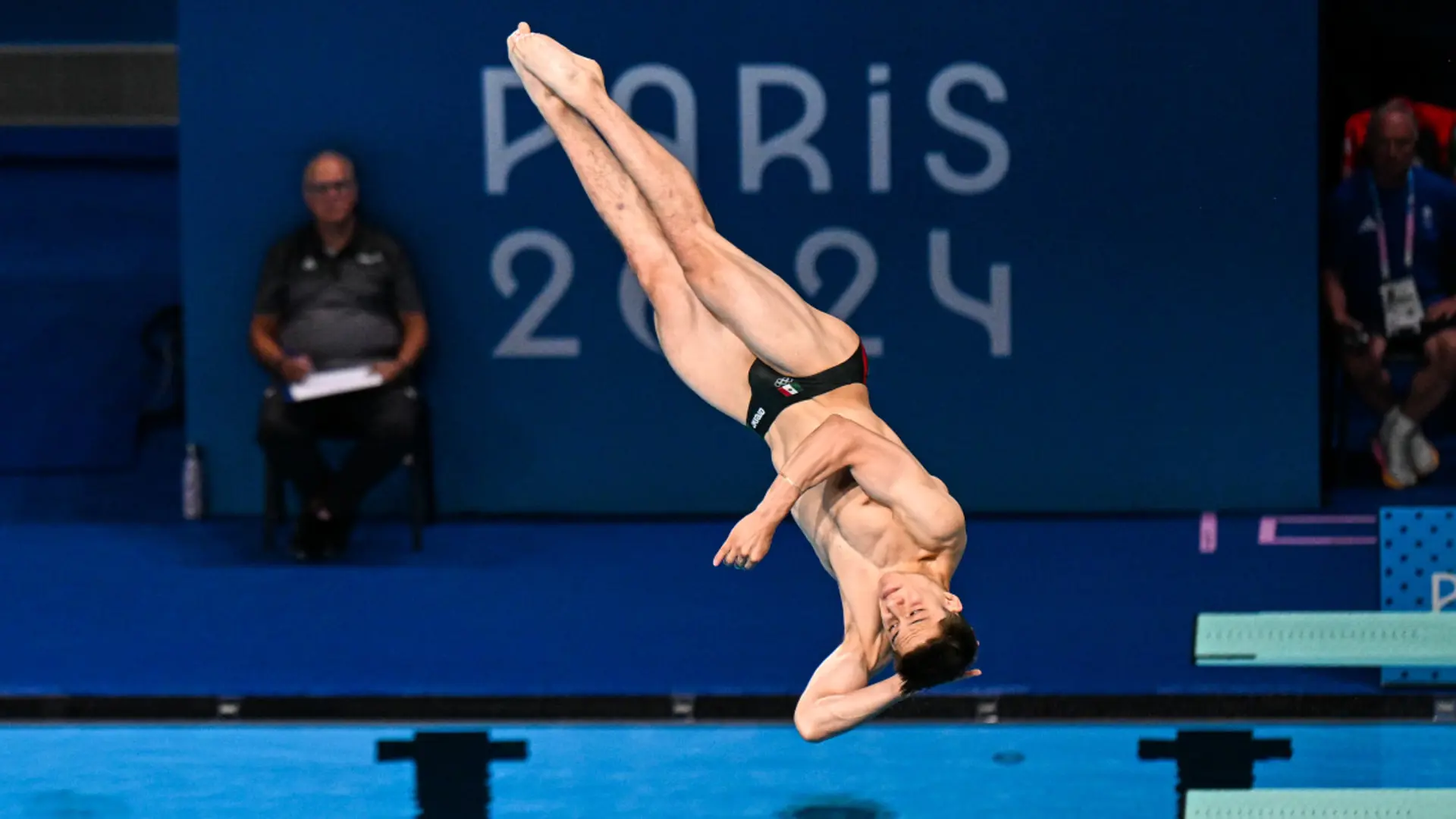Chinese tough love works wonders for Mexico's new diving sensation Olvera

Mexico's Osmar Olvera has been one of the biggest threats to Chinese diving dominance at the Paris Olympics and behind the wonder boy's rise is a coach from Beijing.
At one stage, the 20-year-old from Mexico City looked like scuppering China's hopes of a gold medal sweep in Paris but ultimately had to settle for a silver and bronze in the men's synchronised and individual 3m springboard respectively.
Ma Jin, 56, has been coaching Mexican divers for 21 years since being sent to Latin America on a quasi-diplomatic Chinese sports exchange programme.
Over those two decades, she has coached a number of regional and international medal winners including Mexico's first world champion, Paola Espinosa.
It was perhaps no surprise therefore that an ambitious Olvera approached her at the age of 14.
"Many Mexican kids are scared of me because they think I'm serious and very strict but Osmar was prepared for that," Ma told Reuters after Olvera won his bronze on Thursday.
"He told me 'I want to train with you and you can be as tough as you like. I want to do the same dives as the Chinese'. He said: 'My goal is an Olympic gold medal and I would like to achieve that with you'."
Over the last six years, the pair have worked together to try and fulfil that ambition.
"He's got power and coordination. And he also has a great touch on entry," Ma said. "What's more, after attending competitions in the last two years, he's learned to be able to perform under pressure."
Olvera failed to make the 3m springboard final in the Tokyo Games three years ago but has won four World Championships medals over the last two editions.
In Doha in February, he became the first diver from a country other than China in nearly 20 years to claim the world title in the 1m springboard.
"Oftentimes, I thought he wouldn't be able to win medals and yet he did," she added. "The routines he couldn't do well in training, he would perform nicely in competition."
TRICKY ROUTINES
Olvera wowed the spectators on Thursday with smooth execution and perfect entries in his last two dives, which were the most difficult in his set of routines.
A problematic third dive meant he was not able to close the gap on the top two Chinese divers but Ma said Olvera never wanted to drop his trickier routines.
"That's just his style. He loves doing the ones with high difficulty levels," Ma said. "He's got his mind to it."
Before her Mexico journey, Ma coached the Beijing diving team that included a little girl called Guo Jingjing, who went on to win four Olympic gold medals and become one of China's best-known athletes.
Ma landed in Mexico in 2003 after a three-month crash course in Spanish and has stayed much longer than she had anticipated.
"Athletes said they like me and need me. After so long, I've also developed great affection for the country," said Ma.
"Mexican kids are gifted. But they need to improve on flexibility. They also love trying the difficult, thrilling dives but lack interest in the basics. I have to patiently explain to them why they matter."
Ma said Olvera now had his eyes set firmly on a gold medal at Los Angeles in 2028 and had promised her a million Mexican pesos ($53 129.32) if he succeeded.
"He wants the gold medal," she said. "He's not shy about it and he's full of confidence."
Advertisement

